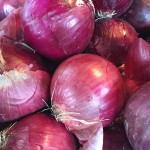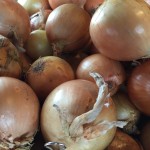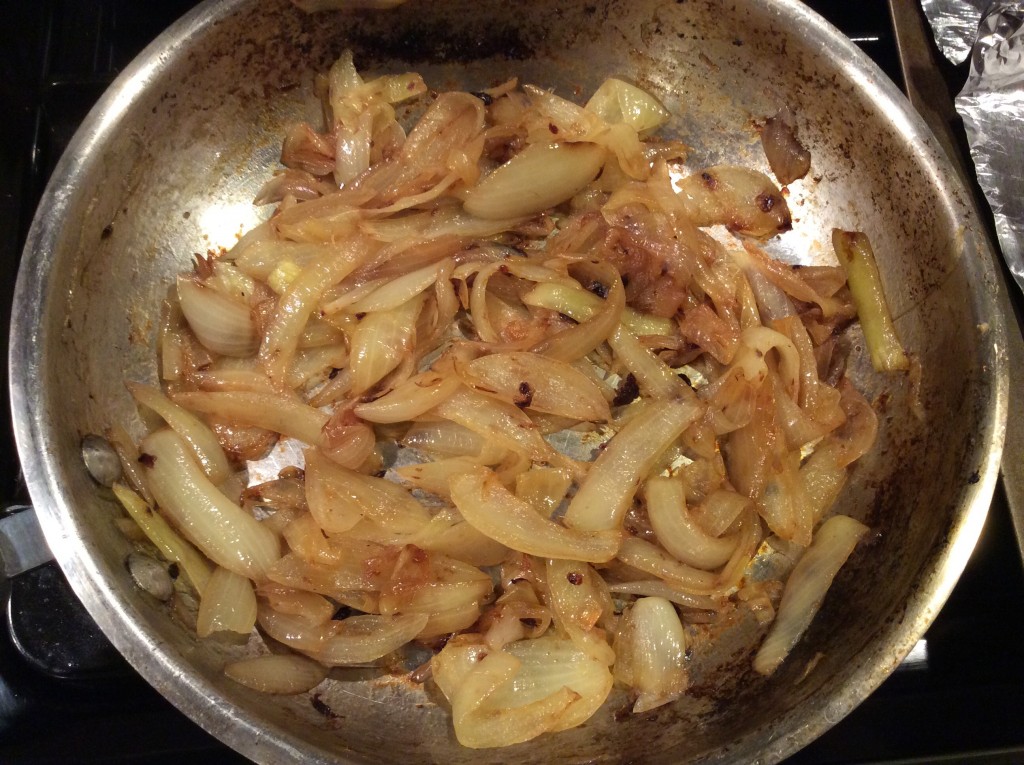That’s right my Springdell friends, today we caramelize. Adding heat to fruit and veggies brings out the natural sugars and carbohydrates within and the browning of those sugars is called caramelization. They become a beautiful deep brown with a sweet taste to them. The key to this is that they take time. You can’t rush, you can’t take shortcuts to get that beauty. Trust me, it’s worth it.
People often think caramelization and they think onions. Well, the onion family loves to be deep brown in color and nutty in flavor (as well as fill your house with the Rolls-Royce of aromas). I happen to have a surplus of onions from my Springdell winter share so let’s begin. Start by slicing your onions about 1/8 inch think, or thicker if you like. Some people think the thinner the better, but that’s not the case here. Giving a slightly thicker cut will prevent your onions from drying out, they have a long cook they need to hold up for. You are not going for mushy onions are you?
 You should add just enough oil to coat the bottom of the pan when you toss the onions in. People love the buttery taste and texture but don’t add any butter at this point. Butter has a higher burning point, so we will add some a bit later.
You should add just enough oil to coat the bottom of the pan when you toss the onions in. People love the buttery taste and texture but don’t add any butter at this point. Butter has a higher burning point, so we will add some a bit later.
 Your burner should be on as low as possible and let them go, stirring every few minutes.
Your burner should be on as low as possible and let them go, stirring every few minutes.
 Don’t crank the heat up to try and speed up the process, it doesn’t work like that. Be patient, this process takes 40-60 minutes, sometimes longer! You can add a bit more oil if they start to stick.
Don’t crank the heat up to try and speed up the process, it doesn’t work like that. Be patient, this process takes 40-60 minutes, sometimes longer! You can add a bit more oil if they start to stick.
At about this point you can add a dab of butter. You should have a nice brown build up on the bottom of the pan, that’s a good thing, a very good thing. Flavor is building up on the bottom, this is called fond. Add a touch of red wine to the pan scrape up the bits into your yummy mixture, this is called deglazing the pan. It makes any dish more flavorful!
There you have it, caramelized onions. Our favorite uses are on baked potatoes, sandwiches or on top of a nicely seared steak.
Enjoy!









